
Majestic Kaisergebirge: Austria's Alpine Jewel
Nestled in the heart of the Tyrol region, the Kaisergebirge is a stunning mountain range that captivates with its rugged beauty and serene landscapes. The range is divided into the Wilder Kaiser (Wild Emperor) and the Zahmer Kaiser (Tame Emperor), each offering its unique charm and allure for visitors. Towering peaks, lush meadows, and crystal-clear streams create a picturesque setting that is perfect for outdoor enthusiasts and nature lovers alike. The Kaisergebirge is renowned for its extensive network of hiking trails, ranging from gentle walks suitable for families to challenging alpine routes for experienced climbers. The area is also a haven for rock climbers, with its steep limestone walls providing a thrilling playground. During the winter months, the region transforms into a snowy wonderland, ideal for skiing, snowshoeing, and ice climbing. Beyond its natural splendor, the Kaisergebirge is steeped in history and culture. Traditional Tyrolean villages like Ellmau and Going offer a glimpse into the region's rich heritage with their charming wooden chalets, local cuisine, and warm hospitality. Visitors can also explore historic sites such as the St. Johann church, which dates back to the 14th century, or take a scenic drive along the Kaiserstraße to soak in the breathtaking views. Whether you're seeking adventure, relaxation, or cultural experiences, the Kaisergebirge has something to offer for everyone.
Local tips in Kaisergebirge
- Wear sturdy hiking boots and bring a map; trails can be challenging and weather conditions change quickly.
- Visit in late spring or early autumn for the best weather and fewer crowds.
- Don't miss the traditional Tyrolean cuisine in local mountain huts, especially the hearty 'Kaiserschmarrn' dessert.
- Check out the local events calendar; festivals and markets offer a unique cultural experience.
- Bring cash, as some smaller establishments may not accept credit cards.
Majestic Kaisergebirge: Austria's Alpine Jewel
Nestled in the heart of the Tyrol region, the Kaisergebirge is a stunning mountain range that captivates with its rugged beauty and serene landscapes. The range is divided into the Wilder Kaiser (Wild Emperor) and the Zahmer Kaiser (Tame Emperor), each offering its unique charm and allure for visitors. Towering peaks, lush meadows, and crystal-clear streams create a picturesque setting that is perfect for outdoor enthusiasts and nature lovers alike. The Kaisergebirge is renowned for its extensive network of hiking trails, ranging from gentle walks suitable for families to challenging alpine routes for experienced climbers. The area is also a haven for rock climbers, with its steep limestone walls providing a thrilling playground. During the winter months, the region transforms into a snowy wonderland, ideal for skiing, snowshoeing, and ice climbing. Beyond its natural splendor, the Kaisergebirge is steeped in history and culture. Traditional Tyrolean villages like Ellmau and Going offer a glimpse into the region's rich heritage with their charming wooden chalets, local cuisine, and warm hospitality. Visitors can also explore historic sites such as the St. Johann church, which dates back to the 14th century, or take a scenic drive along the Kaiserstraße to soak in the breathtaking views. Whether you're seeking adventure, relaxation, or cultural experiences, the Kaisergebirge has something to offer for everyone.
When is the best time to go to Kaisergebirge?
Iconic landmarks you can’t miss
Fortress Hohensalzburg
Discover the breathtaking Fortress Hohensalzburg, a historical gem in Salzburg, offering panoramic views and rich insights into Austria's royal heritage.

Golden Roof
Discover Innsbruck's Golden Roof, a stunning historical landmark adorned with gilded tiles, epitomizing Tyrolean culture and history.
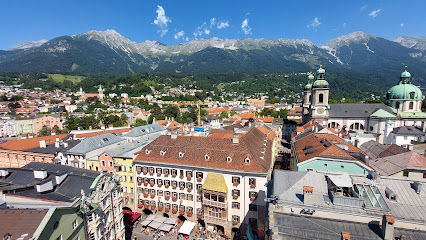
Kufstein Fortress
Explore Kufstein Fortress, a stunning historical castle offering panoramic views and rich cultural insights in the heart of Austria's Tyrol region.
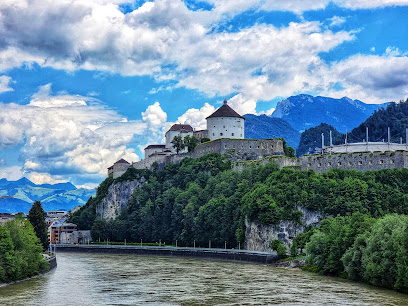
Ellmi's Zauberwelt Bergstation
Experience the enchanting Ellmi's Zauberwelt Bergstation, where breathtaking alpine views and exciting activities await visitors of all ages in the heart of the Tyrolean Alps.
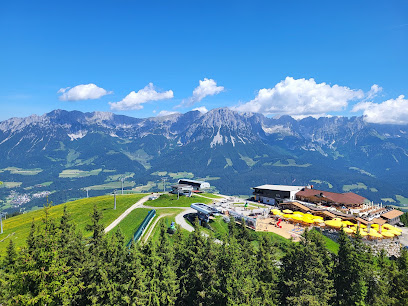
Bergdoktorhaus - Bergdoktor practice
Experience the charm and beauty of Bergdoktorhaus in Ellmau, a captivating attraction blending stunning landscapes with the beloved TV series 'Der Bergdoktor'.
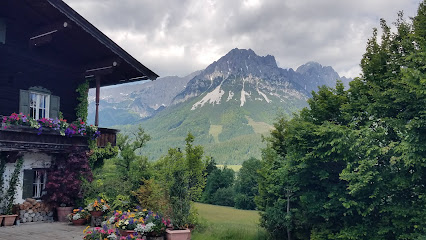
Bergbahn Scheffau GmbH & Co KG
Experience breathtaking views and thrilling adventures at Bergbahn Scheffau, the ultimate mountain cable car destination in the Tyrolean Alps.
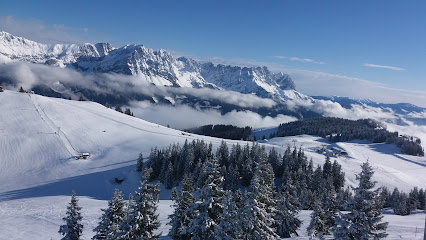
Tratzberg Castle
Discover the enchanting beauty and rich history of Tratzberg Castle, one of Austria's finest medieval attractions nestled in the stunning Tyrolean landscape.
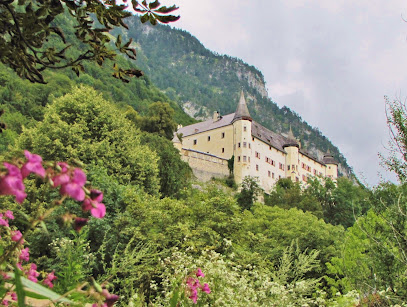
Wolfsklamm
Discover the breathtaking beauty and historical significance of Wolfsklamm, a stunning gorge perfect for hiking and nature exploration in Tyrol.
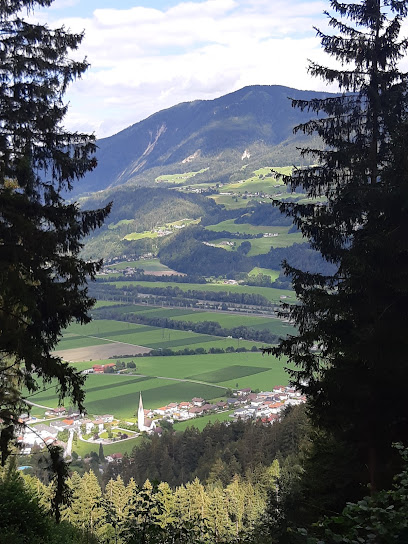
Dorfplatz Going
Explore the breathtaking landscapes and charming atmosphere of Dorfplatz Going, the perfect alpine retreat for hikers and nature lovers in Austria.
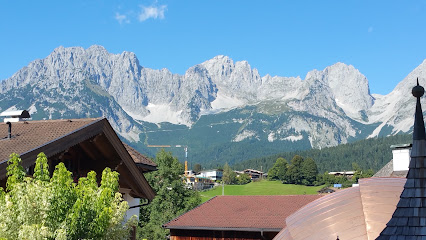
Zahmer Kaiser
Discover the breathtaking beauty and thrilling adventures at Zahmer Kaiser, the ultimate mountain cable car experience in Walchsee, Austria.
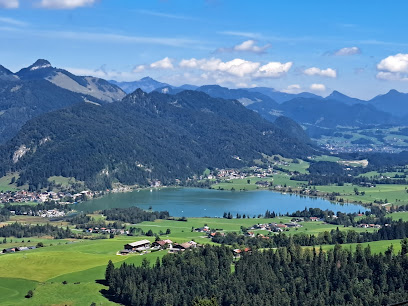
Badesee Going
Discover the serene beauty of Badesee Going, a stunning alpine lake perfect for relaxation, swimming, and outdoor adventures amidst breathtaking mountain views.
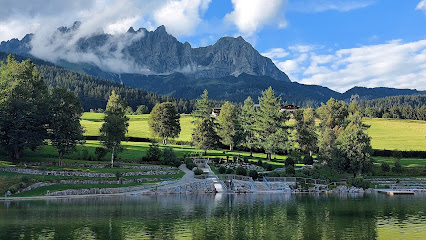
Grutten Hut
Experience the charm of Grutten Hut, a scenic mountain cabin in the Tyrolean Alps with breathtaking views and delicious local cuisine.
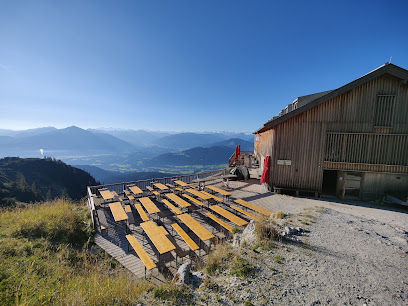
Gaudeamushütte - Kaiser Mountains
Discover the breathtaking beauty of the Kaiser Mountains at Gaudeamushütte, a cozy mountain cabin perfect for hikers and nature lovers.
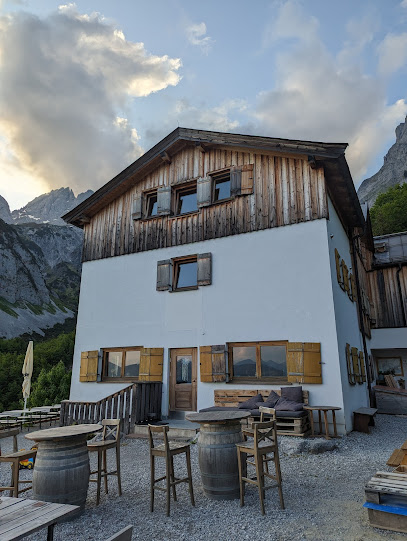
Ahornsee Söll
Discover the beauty of Ahornsee Söll, a scenic alpine lake perfect for swimming, hiking, and enjoying the stunning Tyrolean landscape.
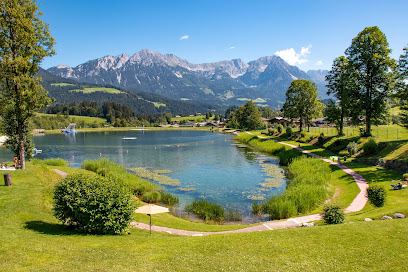
Stripsenjochhaus
Discover the Stripsenjochhaus, a charming mountain cabin in the Tyrolean Alps, offering stunning views, local cuisine, and excellent hiking trails.
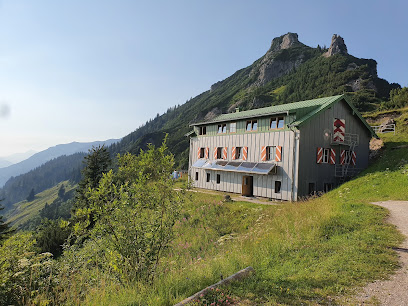
Unmissable attractions to see
Grutten Hut
Discover Grutten Hut, a charming mountain cabin in Ellmau offering stunning views, delightful Austrian cuisine, and a perfect stop for hikers.
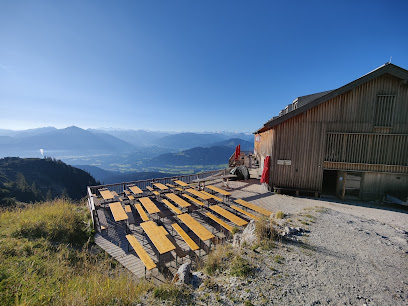
Camping Seespitz
Discover Camping Seespitz in Walchsee: A serene campground nestled by the lake, perfect for nature lovers and adventure enthusiasts seeking an unforgettable experience.
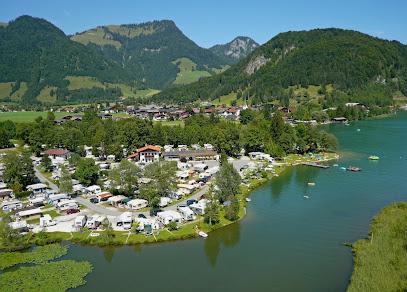
Ferienpark Terrassencamping Süd-See
Experience the beauty of Walchsee at Ferienpark Terrassencamping Süd-See - a perfect spot for camping, relaxation, and outdoor adventures in Austria.
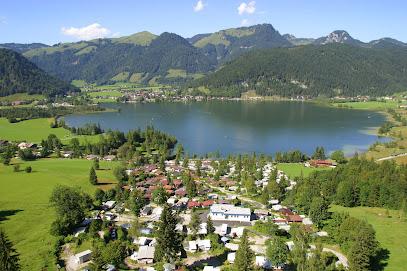
Ahornsee Söll
Discover the breathtaking beauty of Ahornsee Söll, a serene swimming lake and hiking paradise nestled in the heart of the Tyrolean Alps.
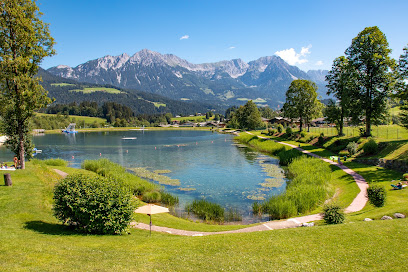
Schleier Wasserfall
Discover the enchanting beauty of Schleier Wasserfall in Going am Wilden Kaiser, Austria's breathtaking natural wonder amidst the Alps.
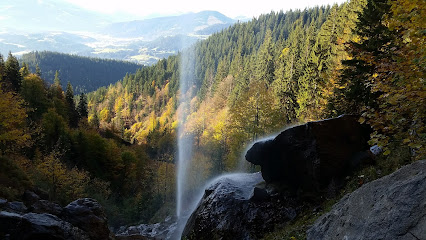
Badestrand Walchsee Ostufer
Discover Badestrand Walchsee Ostufer: a tranquil swimming lake in Tyrol, perfect for relaxation, swimming, and breathtaking mountain views.
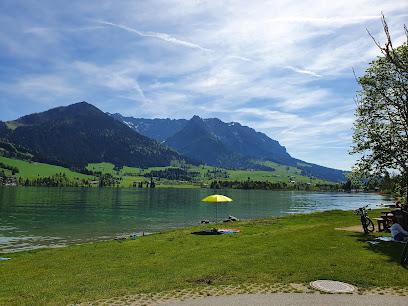
Promenade Walchsee Badestelle
Experience the serene beauty of Promenade Walchsee Badestelle, a perfect lakeside retreat in Walchsee, Austria, ideal for swimming and relaxation.
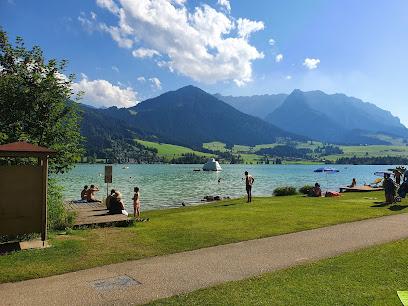
Walchsee
Explore Walchsee, a stunning alpine lake perfect for swimming, hiking, and enjoying serene nature in the heart of Tyrol.
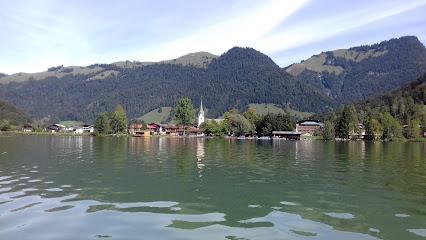
Spatlahnerklamm
Explore the breathtaking Spatlahnerklamm, a stunning hiking area in Ellmau, Austria, where nature's beauty meets adventure.
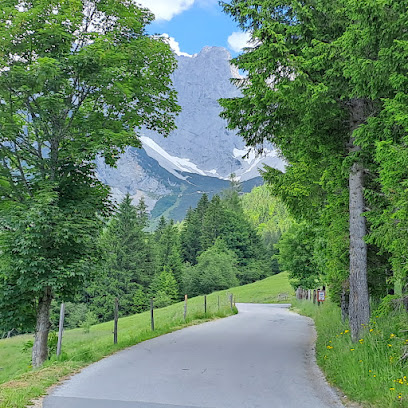
Heimatmuseum Ellmau
Explore the captivating heritage of Ellmau at the Heimatmuseum, where Tyrolean history and culture come to life through fascinating exhibits and artifacts.
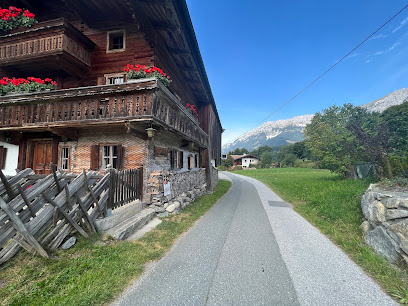
Museum St. Johann in Tirol
Explore the captivating history of St. Johann in Tirol at the Museum St. Johann, a treasure trove of Tyrolean heritage and culture.
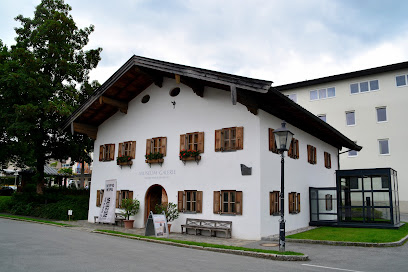
Schloß Wildenwart
Experience the historic charm of Schloss Wildenwart, a stunning castle in Frasdorf with picturesque views and rich Bavarian heritage.
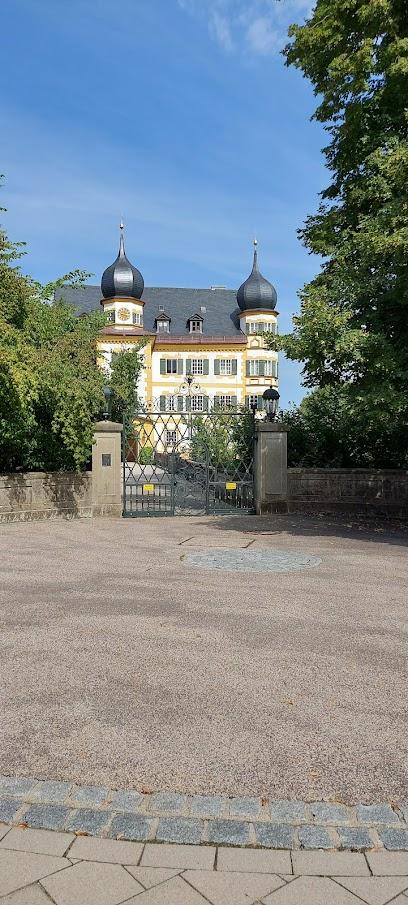
Ellmauer Tor
Explore Ellmauer Tor, a breathtaking hiking area in the Tyrolean Alps, where nature's beauty and adventure await every traveler.
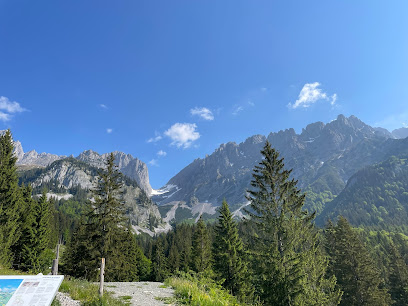
Das Walchsee Lakeside
Discover the serene beauty and luxurious comfort of Das Walchsee Lakeside, your gateway to relaxation and adventure in the Austrian Alps.
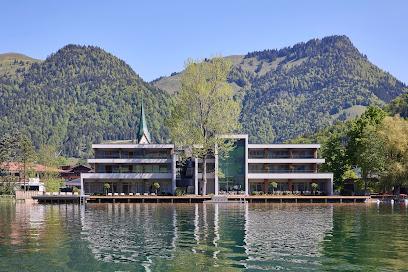
Naunspitze
Explore the breathtaking Naunspitze in Kaisertal, a perfect blend of adventure and tranquility in the heart of Tyrol's natural beauty.
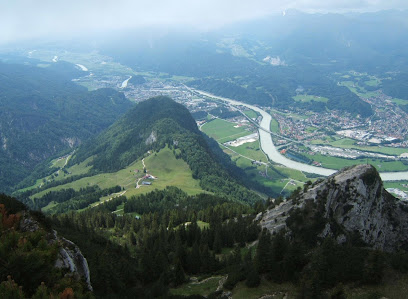
Essential places to dine
Rübezahl-Alm
Discover authentic Austrian cuisine at Rübezahl-Alm amidst breathtaking alpine scenery in Ellmau am Wilden Kaiser.
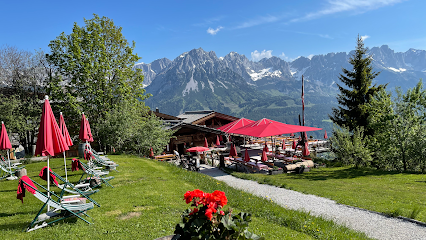
Wochenbrunner Alm
Discover the flavors of Austria at Wochenbrunner Alm—where culinary tradition meets stunning alpine views.
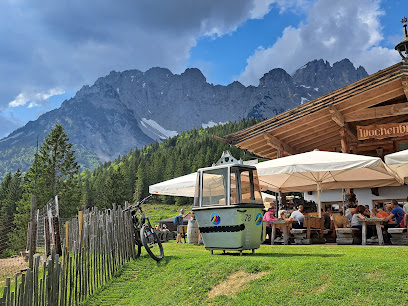
Bergrestaurant Brandstadl - Scheffau
Experience authentic Austrian cuisine amidst breathtaking alpine views at Bergrestaurant Brandstadl.
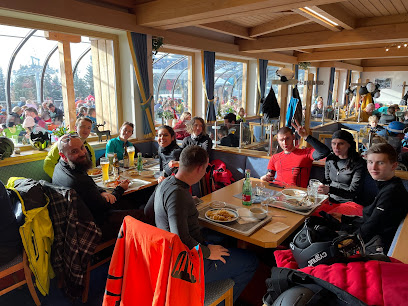
Tanzbodenalm Gastronomie GmbH
Experience authentic Austrian cuisine at Tanzbodenalm in Söll - where breathtaking mountain views meet delicious flavors.
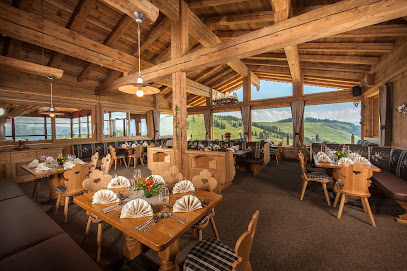
Alpengasthof Jägerhütte
Discover Alpengasthof Jägerhütte: A cozy Austrian restaurant offering authentic cuisine and stunning mountain views in Ellmau.
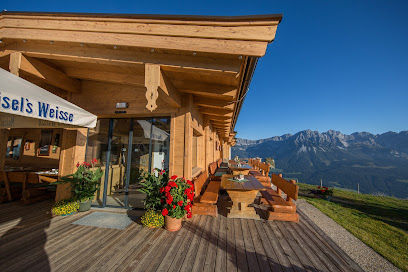
Gasthof Restaurant Ellmauer Hof
Discover the essence of Tyrolean cuisine at Gasthof Restaurant Ellmauer Hof, where tradition meets taste amidst breathtaking alpine scenery.
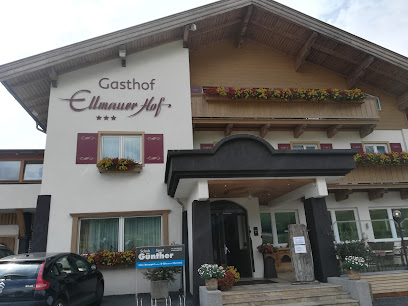
Restaurant
Discover authentic Austrian cuisine amidst breathtaking mountain views at Bergkaiser in Ellmau.
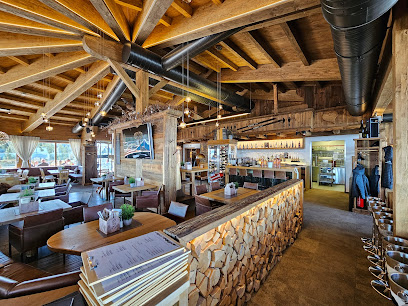
Treichlhof
Experience authentic Austrian cuisine at Treichlhof in Ellmau – where delicious breakfasts meet breathtaking mountain views.
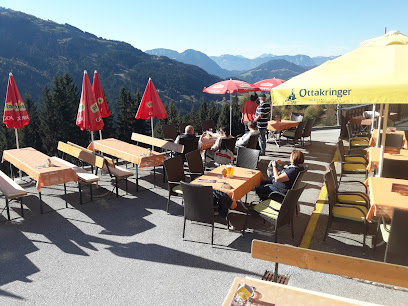
Restaurant Alexandra Going am Wilden Kaiser
Experience exquisite European cuisine amidst stunning alpine views at Restaurant Alexandra in Going am Wilden Kaiser.
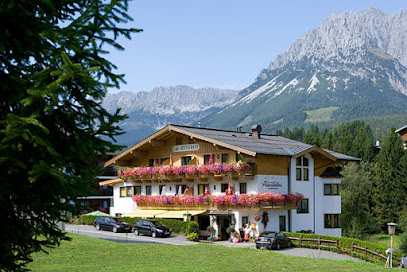
Pizzeria Donatello
Experience authentic Italian flavors at Pizzeria Donatello in the heart of Scheffau am Wilden Kaiser, surrounded by stunning alpine scenery.
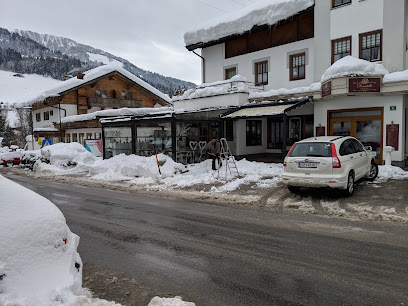
Reischerwirt
Discover authentic Austrian flavors at Reischerwirt in Going am Wilden Kaiser - where tradition meets breathtaking alpine beauty.
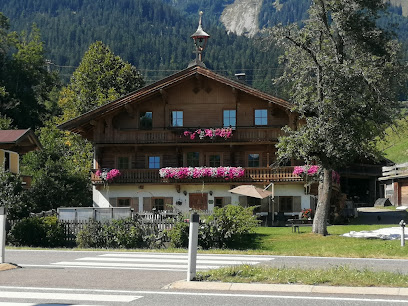
Restaurant und Boutique Pension Jägerwirt
Experience authentic Tyrolean hospitality at Restaurant und Boutique Pension Jägerwirt in Scheffau am Wilden Kaiser - where local flavors meet cozy accommodations.
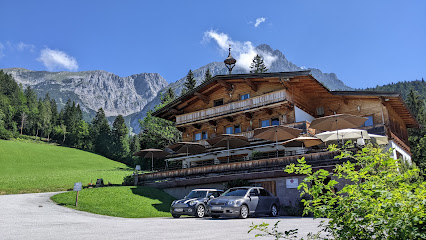
Berggasthof Neualm
Discover authentic Austrian cuisine at Berggasthof Neualm, nestled in stunning alpine landscapes with breathtaking views.
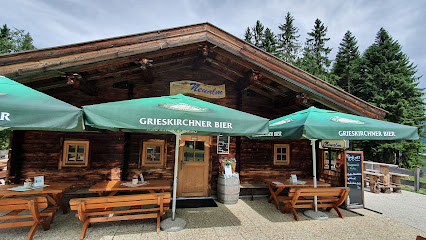
s' kleine Wirtshaus
Discover authentic Tyrolean flavors at s' kleine Wirtshaus in scenic Ellmau - your destination for traditional Austrian cuisine.
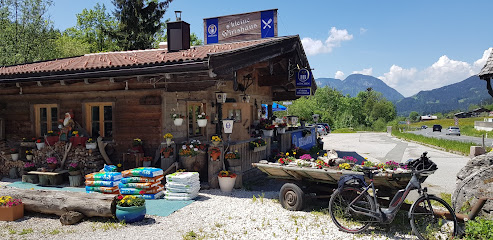
Hotel-Gasthof Weberbauer Scheffau
Discover authentic Austrian hospitality at Hotel-Gasthof Weberbauer in Scheffau am Wilden Kaiser – your gateway to alpine adventures.
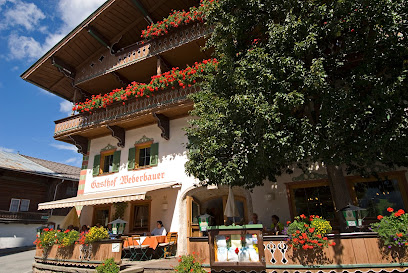
Markets, malls and hidden boutiques
SPAR
Experience the best of local and international groceries at SPAR in Ellmau, a go-to supermarket for all your culinary needs.
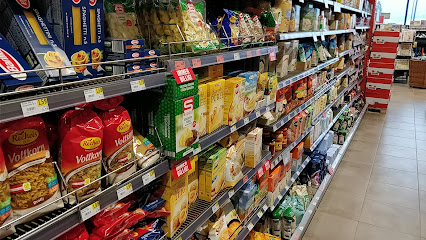
SPAR Erler Scheffau
Explore local flavors and essentials at SPAR Erler Scheffau, your friendly supermarket in the heart of Scheffau am Wilden Kaiser.
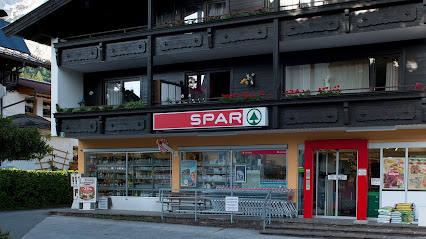
Ski Ellmau / Shoe - Sport Günther
Explore Ski Ellmau, your premier destination for skiing gear and expert advice in the heart of the Austrian Alps, ensuring an unforgettable alpine adventure.
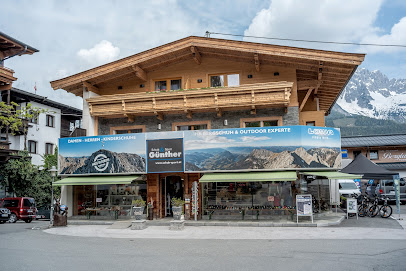
INTERSPORT Winkler
Explore the beauty of the Tyrolean Alps with top-notch gear from INTERSPORT Winkler, your ultimate sporting goods destination in Ellmau.
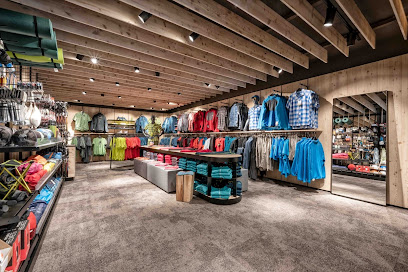
Goingsport
Discover Goingsport: Your one-stop destination for cycling and outdoor adventures in the heart of Going am Wilden Kaiser.
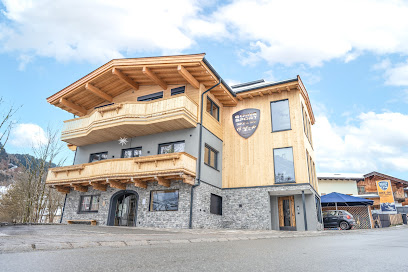
Ellmauer Zirbenwelt
Explore Ellmauer Zirbenwelt, a unique gift shop in Ellmau offering handcrafted souvenirs and local delicacies that capture the spirit of Tyrol.
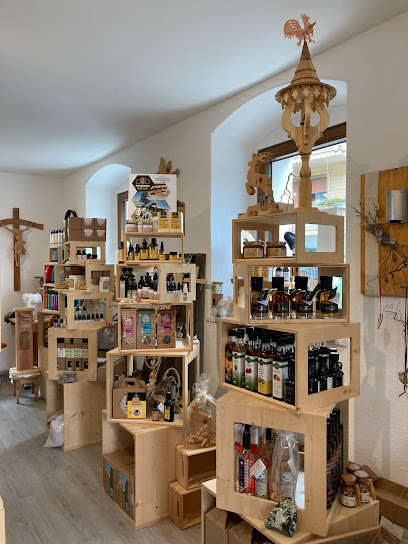
BIPA
Discover BIPA in Ellmau for an unparalleled selection of cosmetics, skincare, and fragrances that enhance your beauty journey.
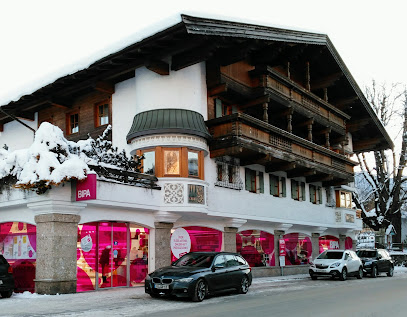
Josef Praschberger
Discover unique gifts and local liquors at Josef Praschberger in Walchsee, the perfect destination for memorable souvenirs.
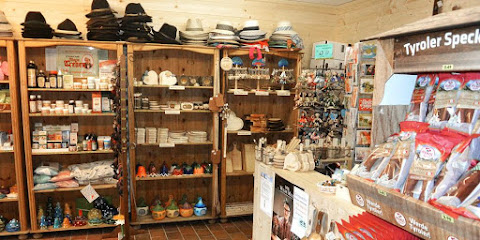
Jochum Souvenirs
Discover authentic Austrian gifts and local treasures at Jochum Souvenirs in the heart of Ellmau, a must-visit for every traveler.
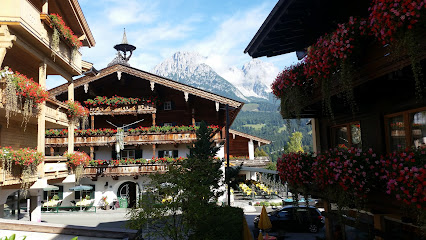
Kaiserkraft Naturprodukte e.U.
Discover a treasure trove of premium teas, herbs, and spices at Kaiserkraft Naturprodukte in the heart of Söll, Austria.
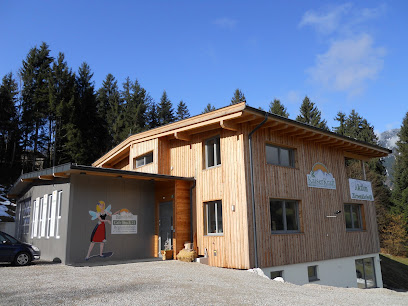
Hofer Schmiedbauer
Discover the culinary delights of Ellmau at Hofer Schmiedbauer, a premier grocery store offering local specialties and fresh produce.
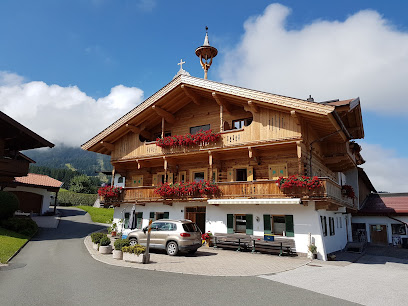
Wilder Käser Bauernladen
Discover the essence of Tyrolean flavors at Wilder Käser Bauernladen, Ellmau's premier deli for artisanal cheeses and local delicacies.
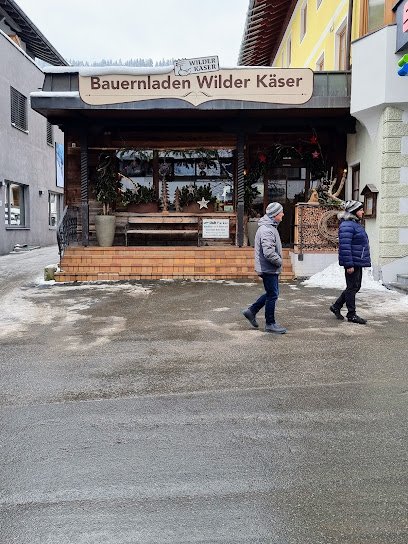
Hansi's Almladl Wochenbrunn
Discover local delights at Hansi's Almladl Wochenbrunn, the perfect convenience store for tourists exploring Ellmau, Austria.
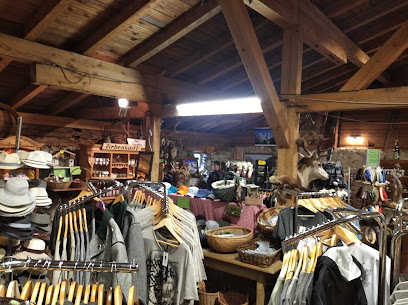
HAUNOLD ELLMAU
Explore Haunold Ellmau, a vibrant hypermarket in Ellmau, Austria, offering local products and a taste of authentic Austrian culture.
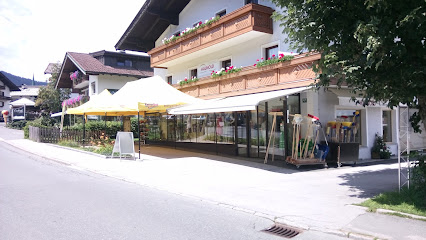
DAHOAM Lifestyle by 1064°
Discover exquisite handcrafted jewelry that captures the essence of Tyrol at DAHOAM Lifestyle by 1064° in Ellmau.
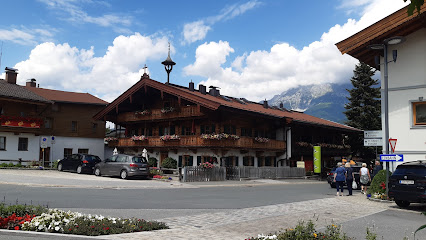
Essential bars & hidden hideouts
Moonlight Bar
Experience the vibrant nightlife of Söll at Moonlight Bar, where great drinks and a welcoming atmosphere await you in the heart of the Alps.
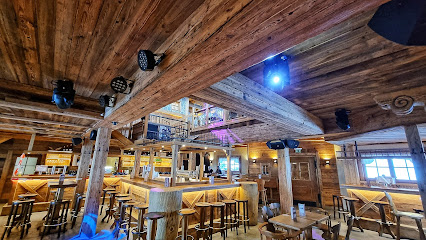
d'schupf
Discover the delightful flavors of Tyrol at d'schupf, where grilled delicacies meet warm hospitality in the heart of Ellmau.
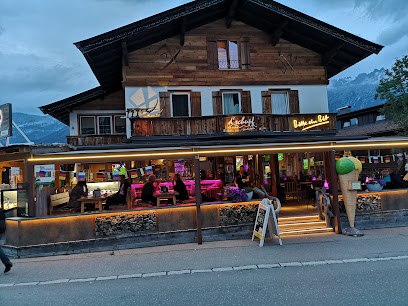
Stollen 1930 - weltweit grösste Gin Bar
Uncover the magic of Stollen 1930, the world's largest gin bar in Kufstein, with over 1,000 gin varieties and vibrant nightlife.
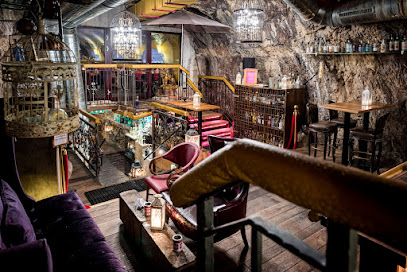
Ellmauer Hex - Apre‘s Ski Stadl
Experience the vibrant après ski culture at Ellmauer Hex, the ultimate bar for relaxation and fun in Ellmau's stunning alpine setting.
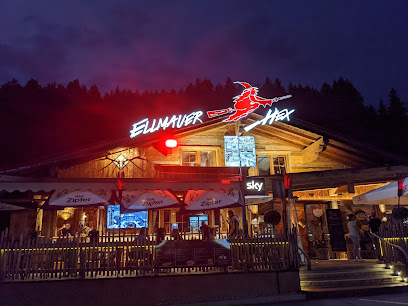
Fabels Ellmau
Experience the best of Austrian cuisine at Fabels Ellmau, where warmth and flavor meet in a cozy alpine setting.
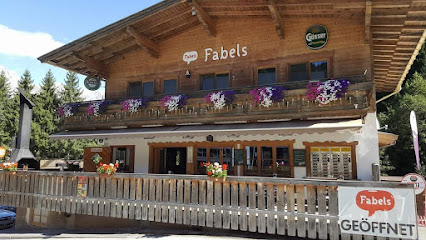
Post Bar
Discover the vibrant nightlife of St. Johann at Post Bar, where expertly crafted cocktails and a lively atmosphere await every visitor.

Kulturfabrik Bar
Discover the vibrant atmosphere of Kulturfabrik Bar in Kufstein, where live music and a creative ambiance await every visitor.
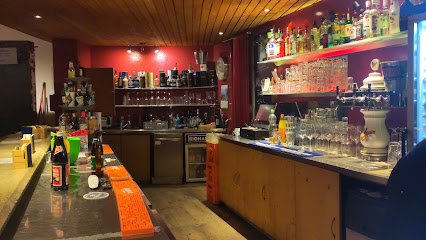
The Black Sheep
Experience the charm of The Black Sheep, a beloved gastropub in Oberndorf, offering delicious food, refreshing drinks, and a welcoming atmosphere.
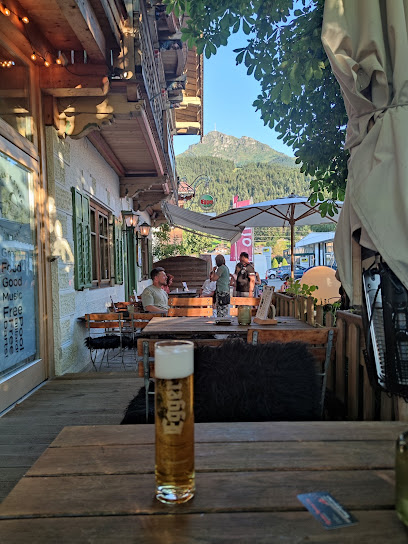
Jägerwirt's Schuster Bar
Discover the charm of Jägerwirt's Schuster Bar in Scheffau am Wilden Kaiser, where authentic Austrian drinks and a cozy atmosphere await you.
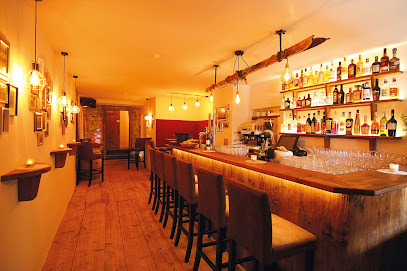
Panorama 1830 - Skybar
Discover Kufstein's breathtaking skyline at Panorama 1830, a skybar offering exquisite drinks and unforgettable views of Tyrol's majestic landscape.
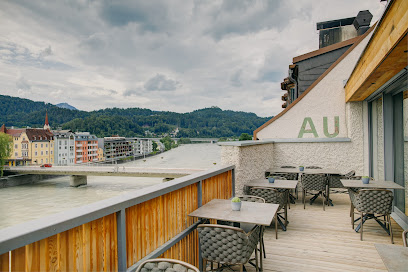
Kaktus Bar
Discover Kufstein's Kaktus Bar, the perfect blend of atmosphere, quality drinks, and friendly vibes for an unforgettable nightlife experience.
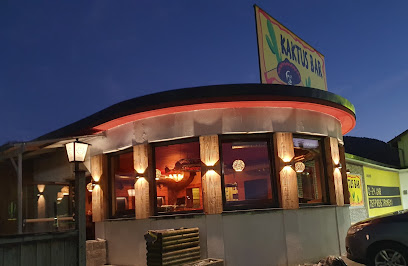
TOPBar Ellmau
Experience the vibrant nightlife at TOPBar Ellmau, where refreshing drinks meet stunning mountain views in the heart of Ellmau.
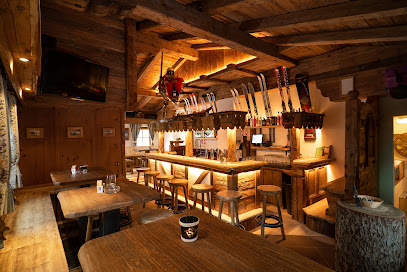
Irish Pub Paddy´s Shebeen
Discover the heart of Irish hospitality at Paddy's Shebeen in Ellmau, offering traditional food, drinks, and a cozy atmosphere in the Austrian Alps.
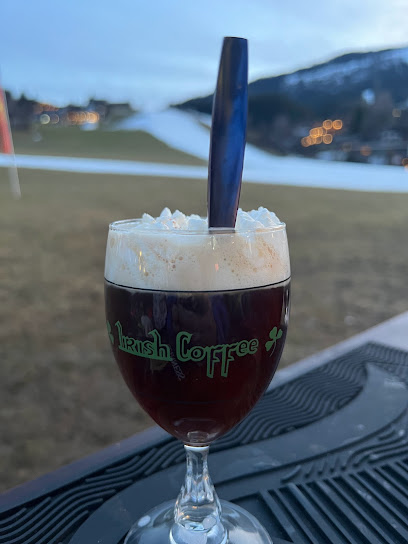
Dagnbar - Crazy Horse
Experience the vibrant nightlife of Walchsee at Dagnbar - Crazy Horse, where local charm meets lively entertainment in a cozy bar setting.

Local Phrases about Kaisergebirge
-
- HelloGrüß Gott
[grewss got] - GoodbyeAuf Wiedersehen
[ouf vee-dur-zay-en] - YesJa
[yah] - NoNein
[nine] - Please/You're welcomeBitte
[bi-teh] - Thank youDanke
[dahn-keh] - Excuse me/SorryEntschuldigung
[ent-shool-dee-goong] - How are you?Wie geht es Ihnen?
[vee gayt es een-en] - Fine. And you?Gut. Und Ihnen?
[goot oond een-en] - Do you speak English?Sprechen Sie Englisch?
[shprek-en zee eng-lish] - I don't understandIch verstehe nicht
[ikh fer-shtay-eh nikht]
- HelloGrüß Gott
-
- I'd like to see the menu, pleaseIch möchte die Speisekarte sehen, bitte
[ikh merk-teh dee shpy-ze-kar-teh zay-en, bi-teh] - I don't eat meatIch esse kein Fleisch
[ikh ess-eh kine fly-sh] - Cheers!Prost!
[prohst] - I would like to pay, pleaseIch möchte bezahlen, bitte
[ikh merk-teh bay-tsah-len, bi-teh]
- I'd like to see the menu, pleaseIch möchte die Speisekarte sehen, bitte
-
- Help!Hilfe!
[hil-feh] - Go away!Gehen Sie weg!
[gey-en zee vekh] - Call the Police!Rufen Sie die Polizei!
[roo-fen zee dee po-lee-tsy] - Call a doctor!Rufen Sie einen Arzt!
[roo-fen zee i-nen artsht] - I'm lostIch habe mich verirrt
[ikh hah-beh mekh fer-eert] - I'm illIch bin krank
[ikh been krank]
- Help!Hilfe!
-
- I'd like to buy...Ich möchte kaufen...
[ikh merk-teh kow-fen] - I'm just lookingIch schaue mich nur um
[ikh shou-eh mekh noor oom] - How much is it?Wie viel kostet das?
[vee feel kaws-tet dahs] - That's too expensiveDas ist zu teuer
[dahs ist tsoo toy-er] - Can you lower the price?Können Sie den Preis senken?
[kern-en zee den prys zeng-ken]
- I'd like to buy...Ich möchte kaufen...
-
- What time is it?Wie spät ist es?
[vee shpayt ist es] - It's one o'clockEs ist ein Uhr
[es ist iyn oor] - Half past (10)Halb (10)
[halb (tsen)] - MorningMorgen
[mor-gen] - AfternoonNachmittag
[nakh-mit-tahg] - EveningAbend
[ah-bent] - YesterdayGestern
[ges-tern] - TodayHeute
[hoy-teh] - TomorrowMorgen
[mor-gen] - 1Eins
[ines] - 2Zwei
[tsvay] - 3Drei
[dry] - 4Vier
[feer] - 5Fünf
[fuhnf] - 6Sechs
[zeks] - 7Sieben
[zee-ben] - 8Acht
[akht] - 9Neun
[noyn] - 10Zehn
[tsen]
- What time is it?Wie spät ist es?
-
- Where's a/the...?Wo ist ein/der...?
[vo ist iyn/dehr] - What's the address?Was ist die Adresse?
[vas ist dee ah-dreh-seh] - Can you show me (on the map)?Können Sie mir das zeigen (auf der Karte)?
[kern-en zee meer dahs tsee-gen (ouf dehr kar-teh)] - When's the next (bus)?Wann kommt der nächste (Bus)?
[van komt dehr nakh-steh (boos)] - A ticket (to ....)Eine Fahrkarte (nach ....)
[i-ne fahr-kar-teh (nakh)]
- Where's a/the...?Wo ist ein/der...?
History of Kaisergebirge
-
Archaeological evidence suggests that the Kaisergebirge region was inhabited as early as the Neolithic period. Artifacts such as stone tools and pottery fragments have been found, indicating that early humans utilized the natural resources of the area for their survival.
-
During the medieval period, the strategic importance of the Kaisergebirge mountains was recognized by various ruling families. Fortifications and castles were constructed to protect the region and its trade routes. Notable among these is the Kufstein Fortress, which stands as a testament to the medieval defensive architecture and the turbulent history of the area.
-
The Habsburg dynasty, which ruled Austria for centuries, had a significant impact on the Kaisergebirge region. The mountains served both as a retreat for the nobility and as a natural barrier against invasions. The Habsburgs invested in the development of infrastructure, including roads and inns, facilitating easier access to the region.
-
The 19th century saw the rise of mountaineering as a popular activity in the Kaisergebirge. The first recorded ascent of the Wilder Kaiser, the highest peak in the range, was made in 1881. This period marked the beginning of organized alpinism, with the establishment of mountain huts and trails that are still in use today.
-
The Kaisergebirge, like much of Europe, was affected by the turmoil of the World Wars. During World War I and II, the region saw military activity, including training exercises and the construction of bunkers. The mountains provided a natural refuge for resistance movements and saw limited but significant conflict.
-
After World War II, the Kaisergebirge region experienced a boom in tourism. The natural beauty and the relatively untouched landscape attracted visitors from around the world. Investments in tourism infrastructure, such as cable cars and ski resorts, transformed the area into a premier destination for both summer and winter activities.
-
The Kaisergebirge region is rich in cultural heritage, with traditional Tyrolean customs still practiced today. Annual festivals, such as the Almabtrieb (cattle drive) and various local fairs, celebrate the region's agricultural and pastoral traditions. These events offer visitors a glimpse into the local way of life and the enduring cultural practices.
Kaisergebirge Essentials
-
The Kaisergebirge mountain range is located in Tyrol, Austria. The nearest international airport is Munich Airport in Germany, approximately 130 kilometers away. From Munich, you can take a train to Kufstein, which is the nearest town to the Kaisergebirge. The train journey takes around 1.5 hours. Alternatively, you can fly into Innsbruck Airport, which is about 90 kilometers away, and then take a train or rent a car to reach the Kaisergebirge.
-
Within Kaisergebirge, the primary means of transportation are hiking and cable cars. The area is known for its extensive network of well-marked hiking trails that cater to all levels of hikers. Cable cars and gondolas are available to take you to higher altitudes for breathtaking views and easier access to various trails. For those looking to explore nearby towns, local buses and taxis are available. Renting a car can also be a convenient option for greater flexibility.
-
The official currency in Austria is the Euro (EUR). Credit cards are widely accepted in hotels, restaurants, and shops in the Kaisergebirge area. However, it is advisable to carry some cash for smaller establishments, mountain huts, and rural areas. ATMs are available in nearby towns such as Kufstein and Ellmau, where you can withdraw cash as needed.
-
Kaisergebirge is generally a safe destination for tourists. However, it is always wise to take standard precautions. Keep an eye on your belongings in crowded areas and avoid leaving valuables unattended. While there are no specific high-crime areas targeting tourists, it is recommended to stay vigilant, especially in isolated hiking trails. Always inform someone about your hiking plans and estimated return time.
-
In case of emergency, dial 112 for immediate assistance, which is the European emergency number. Local police stations and medical facilities are available in nearby towns like Kufstein. It is highly recommended to have travel insurance that covers medical emergencies and mountain rescue. For minor health issues, there are pharmacies in Kufstein and Ellmau where you can purchase over-the-counter medications.
-
Fashion: Do wear appropriate hiking gear and layers, as weather can change quickly in the mountains. Avoid wearing flip-flops or high heels on trails. Religion: Do respect local customs and traditions. If visiting religious sites, dress modestly. Public Transport: Do respect local transport etiquette, such as giving up your seat for elderly passengers. Don't be loud or disruptive on public transport. Greetings: Do greet people with a friendly 'Grüß Gott' (Hello) or 'Servus' (Hi). A handshake is common. Eating & Drinking: Do try local Tyrolean specialties and accept food offerings graciously. Don’t refuse hospitality, as it is considered impolite.
-
To experience Kaisergebirge like a local, visit the traditional alpine huts (Almhütten) where you can enjoy authentic Tyrolean cuisine and stunning views. Engage with locals to learn about the region’s history and traditions. Don’t miss out on visiting the Hintersteiner See, a beautiful alpine lake perfect for a refreshing swim. For a unique experience, take the Wilder Kaiser Cable Car to the top and enjoy panoramic views of the surrounding mountains.
Trending Landmarks in Kaisergebirge
-
Fortress Hohensalzburg
-
Golden Roof
-
Kufstein Fortress
-
Ellmi's Zauberwelt Bergstation
-
Bergdoktorhaus - Bergdoktor practice
-
Bergbahn Scheffau GmbH & Co KG
-
Tratzberg Castle
-
Wolfsklamm
-
Dorfplatz Going
-
Zahmer Kaiser
-
Badesee Going
-
Grutten Hut
-
Gaudeamushütte - Kaiser Mountains
-
Ahornsee Söll
-
Stripsenjochhaus
Nearby Cities to Kaisergebirge
-
Things To Do in Zell am See
-
Things To Do in Salzburg
-
Things To Do in Innsbruck
-
Things To Do in Bad Gastein
-
Things To Do in Munich
-
Things To Do in Hallstatt
-
Things To Do in St. Anton am Arlberg
-
Things To Do in Kranjska Gora
-
Things To Do in Linz
-
Things To Do in Klagenfurt
-
Things To Do in Bohinj
-
Things To Do in Bled
-
Things To Do in Bregenz
-
Things To Do in Dornbirn
-
Things To Do in Český Krumlov











